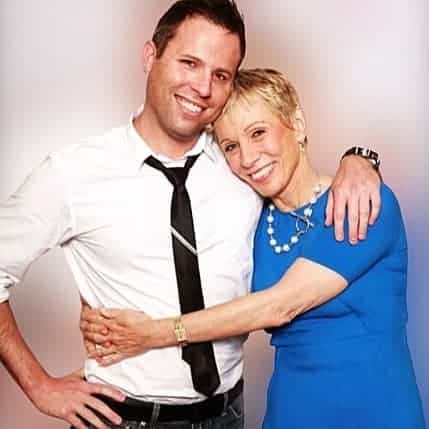Want your book to go viral?
Who Do You Want To Contact?
There are no guarantees, but here are some ideas:
- Build a strong author platform and social media presence before the book’s release. This will give you a built-in audience to market your book to and make it easier to reach new readers.
- Create a book launch team of influencers and beta readers who can help promote your book.
- Use paid promotions such as online ads and book giveaways to reach new readers.
- Create a unique hook or angle for your book to make it stand out from the competition.
- Get reviews from well-known publications or bloggers in your genre.
- Utilize word-of-mouth by encouraging satisfied readers to share their thoughts and feedback about the book on social media or in person.
- Be active in online communities related to your book’s topic and engage in discussions with potential readers.
Remember that even with the best marketing strategies, it is still challenging to predict which books will go viral.
However, by following these steps, you can increase your chances of reaching a wider audience and making your book more visible in the market.
Here are five more things you can do as you’re writing that will help your book go viral:
8. Affect People Emotionally
Write a book that makes people react emotionally, where what you’ve written means they’ve got to change.
That’s one thing ‘Rich Dad Poor Dad’ does.
People think, “I’ve got to develop passive income; I’ve got to change how I look at my finances.”
With ‘Chicken Soup for the Soul,’ if each story didn’t make you cry, laugh, or have an emotional reaction, it wasn’t included.
This is one reason those books went viral.
The same is true for Think and Grow Rich. Strong emotional reactions to all these books get people to share them.
9. Use Strategic Storytelling
Now, how do you provoke that kind of reaction?
One way is ‘strategic storytelling.’
For example, Robert Kiyosaki talks about how he had two different dads.
One dad was wealthy.
The other dad played by the rules and worked hard but didn’t have much to show for it.
Kiyosaki draws parallels and shows the differences.
In the ‘Quantum Leap Program,’ there are several coaches who work with people, from a former Oprah producer to an internet marketing coach to an editor who worked at a major publishing house in New York, John Wiley & Sons, for 17 years.
There is also a storytelling coach who’s very good at helping people tell their ‘origin story.’
What’s an origin story?
(sponsored)
Every superhero has one — you know, ‘how Spider-Man became Spider-Man.’
YOU want to be telling YOUR story.
One key to having your book go viral is having other people tell your story — having other people say, for example, “There’s this professor who was diagnosed with a terminal illness. He gave a talk and called it ‘The Last Lecture.’ It was about things he really wanted his students to know.
If it’s succinct, that type of word of mouth allows other people to tell your story.
People need a very quick, intriguing story to share.
In your actual book, if you’re writing nonfiction, you want other stories that illustrate the positive and negative examples of what you teach.
10. Break a myth.
(sponsored)
Another key to getting people talking about your book is to break a myth people WANT you to break.
What is it people believe right now that if you were to tell them, ‘That’s really not the case,’ they might be a bit shocked, but they would be happy?
What myth comes to mind?
For example, think about the Atkins Diet that became so big — and the Paleo Diet.
Why do people try those diets?
When you offer the low-carb or Paleo approach, you can say to people, “Look, you can have steak, you can eat meat, you can eat all the foods that are high in fat.”
I’m not getting into whether the information is true or not.
If it works for people, that’s important.
I’m interested in what makes ideas take hold.
There’s something on, “Why do people even try it?”
In this case, because these ideas break a myth people WANT to break:
“Oh, wow, really? Let me try this.”
Another example: One client wrote a book about getting a mortgage.
He says many people think you can’t get a mortgage after going bankrupt.
But by showing people that they CAN get a mortgage even if they’ve had a bankruptcy, he got a lot more attention because now he’s bringing hope to people.
Whenever something is easier, faster, or better, that’s an appealing message.
I’m not saying I don’t tell people the truth.
I’m saying find what will attract them and make them want to know more.
If you can lose weight without exercise, that’s appealing to many people.
They don’t like to exercise.
“Lose weight without exercise? Wow, okay!”
There may be other good reasons they SHOULD be exercising, but to get people into your world and look at your book, offer something appealing by breaking a myth they were very happy to have you break.
11. Preach a Philosophy a Core Audience Wants to Spread
(sponsored)
One client does a radio show with an author of a New York Times bestseller called ‘Skinny Bitch.’
In an interview, the author shared that one key to her success was that she and her co-author are animal rights activists.
They want to promote the idea of not eating meat, so it’s the opposite of the Atkins diet and the Paleo approach.
Here’s the thing: If they had a book that talked about how they think eating meat is cruel to animals, it probably wouldn’t sell very much.
Instead, they created this book with a cool cover.
The book was sassy.
It had attitude.
It was written in an entertaining style.
It sells you on living the vegan lifestyle.
It preaches a philosophy that not everybody, or even most people, agree with — but some people do.
This was a book animal rights activists got behind, and they wanted to tell others about it because it preached a philosophy they wanted to spread.
Robert Kiyosaki found that multilevel marketing companies would buy his book, ‘Rich Dad, Poor Dad,’ and give it to their sales reps because it preaches the philosophy of having a side business and developing passive income.
It became a very effective place for him to be because he was preaching a philosophy the core audience wanted.
12. Teach Your Material Before You Write It
(sponsored)
Far too many people write a book without ever teaching their material first.
Maybe you’re writing a book because you want the credibility to be able to teach your material, be a speaker, and do consulting and coaching
Few things will give you the credibility a book will.
That said, FIRST teach people your concepts because you’ll write a much better book.
Here’s an example:
John Gray was a Buddhist monk and decided to leave after that.
He started to live his life and date women.
He was now learning and having new experiences, and he wanted to start sharing what he was learning.
John decided to do a workshop.
His first workshop was at his house.
He charged $20 or $30; it wasn’t a lot of money.
He invited people over and taught his concepts before he wrote his bestselling book, ‘Men Are From Mars, Women Are From Venus.’
If you’re working on a book because you want to do workshops or coaching/consulting one day, I suggest you do that now.
You don’t have to wait until your book is finished.
You can be working on the book, but you can start teaching now.
And you really should be, even for free.
Start giving away and sharing your concepts with people because you’ll write a much better book.
Your book will be more on-target, and you’ll have success stories you can mention.
Ask yourself:
What practical things can I do right now to boost my book’s chances of going viral?
Need help?
Listen to this FREE webinar: ‘6 Keys to Outrageous Success as an Author‘ by Jack Canfield, co-author of ‘Chicken Soup for the Soul.’
Join 200,000+ Businesses, Fans, Authors & Nonprofits:
About Contact Any Celebrity…

Jordan McAuley, Founder
Contact Any Celebrity is featured by CNN, American Writers & Artists Institute (AWAI), American Express, Build Book Buzz, CEO Magazine, Digital Marketer, E! News, Entrepreneur Magazine, Fast Company, Forbes, Fox News, Indie by Nature, Launch Grow Joy, New York Post, Newsweek, Nonfiction Authors Association, O’Dwyers Public Relations, Robin Samora PR, The Wrap, Tim Ferriss in “The 4-Hour Workweek,” USA Today & More.




